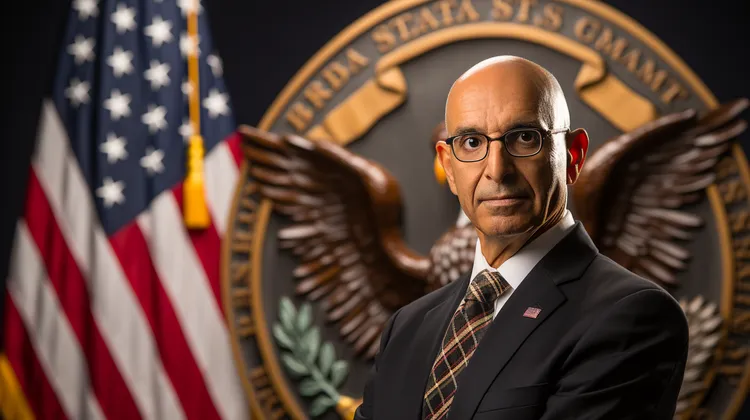
Ex-SEC General Counsel Refutes Crypto Oversight Clash with CFTC
In the constantly evolving world of cryptocurrency, the regulatory landscape has been a topic of prolific debate and occasional confusion. A recent statement from the former General Counsel of the U.S. Securities and Exchange Commission (SEC) has brought a measure of clarity to these discussions, denying any significant regulatory discord between the SEC and the Commodity Futures Trading Commission (CFTC) in the realm of crypto oversight.
Amidst the rapidly growing market for digital assets, regulatory agencies have been under pressure to establish clear guidelines for issuers and traders. The challenge is to protect investors while fostering innovation that can lead to new market opportunities. Historically, the SEC has been tasked with safeguarding the securities markets, while the CFTC’s role has been to oversee commodity futures and options markets.
The former SEC General Counsel emphasized that the SEC and the CFTC have distinctly outlined roles that, when functioning correctly, complement rather than conflict with each other. This distinction is crucial in the context of digital assets, as cryptocurrencies can exhibit characteristics of both securities and commodities.
In particular, the SEC takes the lead when tokens or offerings are deemed to be securities under U.S. law. This determination typically involves the Howey Test, a legal standard arising from a 1946 Supreme Court case which assesses whether a transaction qualifies as an “investment contract” and therefore should be considered a security subject to SEC regulations.
On the other hand, the CFTC has jurisdiction over commodity-based derivatives contracts, including those involving cryptocurrencies like Bitcoin, which has been classified as a commodity. When these assets are packaged as investment products that might qualify as securities, the SEC’s regulatory domain comes into play.
The former General Counsel pointed out that both agencies have been working diligently to navigate this new territory and have engaged in ongoing communication to ensure regulatory measures are effective and efficient. This coordination involves sharing insights on the inherent risks and benefits of digital assets, while also balancing the need to prevent fraud and manipulation in the markets.
The ex-General Counsel underscored the importance of inter-agency collaboration in areas where jurisdictions may overlap. There have been broader calls for creating a harmonized regulatory framework that can adapt to the unique nature of cryptocurrencies and their underlying technologies, such as blockchain.
While critics might have pointed to instances of perceived competition or overlap between the two watchdogs as evidence of discord, the former General Counsel’s comments suggest a different reality. Both the SEC and CFTC have made public commitments to working together, signing joint statements and appearing at hearings to offer a unified front on crypto regulation.
It is also evident that the agencies see the potential for regulatory innovation. For example, both agencies have established fintech initiatives — the SEC’s FinHub and the CFTC’s LabCFTC — designed to engage with industry participants and develop a deeper understanding of new technologies.
These initiatives highlight a forward-thinking approach, recognizing that digital asset markets will not fit neatly into the regulatory frameworks established for traditional financial products. This effort to understand and adapt signifies a commitment to maintaining the United States’ position as a leader in financial innovation while protecting market participants.
The former General Counsel further mentioned recent enforcement actions that have been undertaken collaboratively. High-profile cases involving crypto-based products highlight the successes that come from SEC and CFTC cooperation and signal to the market that regulatory oversight is both active and integrated.
Navigating the complexity of the crypto landscape calls for nuanced understanding and, crucially, patience. As the former General Counsel’s insights have underscored, the relationship between the SEC and the CFTC is not marked by friction but by concerted, albeit complex, cooperation. By working in concert, the two agencies are better equipped to address the unique challenges posed by crypto assets and ensure a stable, fair, and secure marketplace that both investors and innovators can trust.
The former SEC General Counsel’s denial of discord between the SEC and CFTC in overseeing the crypto space is a timely reminder that regulatory clarity is paramount. It reassures market participants that though they may face a web of regulations, these are carefully crafted to protect, foster, and sustain the burgeoning world of digital assets. It’s in this space of shared responsibility and coordination that the future of cryptocurrency regulation will be forged.